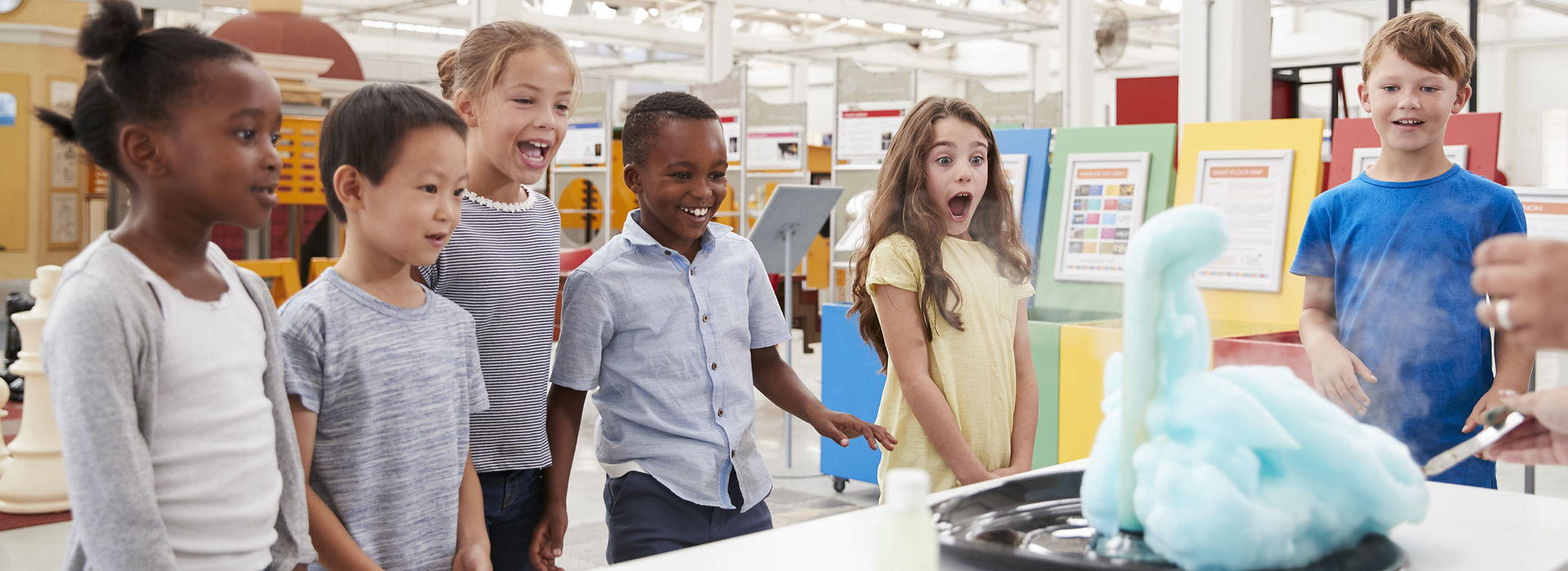
SCIENCE
At Abbey Meads, we aim to
-
Make Science a relevant, exciting and ‘hands on’ subject, stimulating children’s innate curiosity about natural phenomena and events in the world around them.
-
Foster the children’s enjoyment of exploration, discussion and investigation by encouraging questioning and wonder and by providing opportunities for different types of practical investigations, linking to their experiences in the real world.
-
Cover basic scientific knowledge within and between topics sufficiently and build on this so that children progress in their understanding of how science can be used to explain what is occurring, predict how things will behave, and analyse causes.
-
Enable our children to become effective communicators of scientific ideas, facts and data, using scientific vocabulary confidently.
-
Help equip children with the scientific knowledge required to understand the uses and implications of science, today and for the future, as these impact on industry, medicine, business and improve the quality of their own lives and other lives.
-
Foster concern about, and active care for, our environment and provide our children with an enjoyable experience of Science, so that they will develop a deep and lasting interest and may be motivated to study Science further.
In ensuring high standards of teaching and learning in Science, we implement a curriculum that is progressive throughout the whole school and provides exciting, hands on and practical experiences for all children. Science is taught through the specific disciplines of biology, chemistry and physics, following ‘The National Curriculum programmes of study for Science 2014’ and, ‘Understanding the World’ in the Early Years Foundation Stage.
Where possible, Science is linked to class topics and to other curriculum areas, such as Maths, Computing and DT. For example, through English (writing an account of the water cycle); in DT (making an electrical circuit for a model); in Maths (using data and graphs) or Computing (using data loggers).
Practical work lies at the heart of primary Science. Hands-on experience promotes curiosity and engagement and provides opportunities for the discussion and questioning which develop understanding. It also promotes cooperation and collaboration. Children learn to use a variety of approaches to answer relevant scientific questions, including observing over time, pattern seeking, identifying, classifying and grouping, comparative and fair testing and researching using secondary sources. We encourage questioning and wonder. Children are encouraged to ask open-ended questions, such as ‘What if…?’ or ‘I wonder what would happen …’ and investigate these.
We aim to foster an enjoyment of science and develop our children’s understanding of the international and collaborative nature of science by taking part in activities during National Science and Engineering Week and by forging links with local secondary schools. We encourage trips and visits from experts who will enhance their learning experience (such as STEM Ambassadors, ESERO-UK Space Ambassadors, opticians and dental experts).
It is the school’s intent that the implementation of quality teaching and a rich Science curriculum will ensure children not only acquire appropriate age-related knowledge, but also develop skills which equip them to understand an increasingly scientific and technological world. We aim that children will have a wider variety of skills linked to both scientific knowledge and understanding, and scientific enquiry/investigative skills and a richer vocabulary, which will enable them to articulate their understanding of science confidently. Above all, we would like to help develop children into confident, life-long learners who maintain curiosity and wonder throughout their lives.
Links:
https://www.rigb.org/families/experimental
This website has a series of short films making it fun, easy and cheap to do science experiments at home with your children. There are also details of family events, science shows and science museums.
https://www.nasa.gov/kidsclub/index.html
On this website, there are details of past, present and future space missions, activities and space facts.
http://www.esa.int/kids/en/home
On this website, there are details of past, present and future space missions, space facts and details of what it’s like to live in space.
Nature:
https://naturedetectives.woodlandtrust.org.uk/naturedetectives/activities/
https://www.wiltshirewildlife.org/
https://www.nationaltrust.org.uk/nature-and-wildlife
50 things to do before you're 11¾:
http://www.nationaltrust.org.uk/visit/families/50-things/
This is an initiative by the National Trust to try to reconnect children with nature and the outdoors. On this website, there is a short video to introduce the initiative, links to National Trust events and an app to download. Follow the links to sign up a list of the 50 things families can do to get closer to nature and so that your children can track their progress, earn badges, certificates and collect rewards on the way.
Oak and Furrows Wildlife Rescue Centre:
RSPCA Oak & Furrows|Wildlife Rescue Centre (rspcaoandf.org.uk)
This is our local wildlife rescue centre, near Cricklade. On the website, you will find advice on what to do if you find injured or abandoned wildlife. Our school supports this charity by holding fundraising stalls and making collections of dog & cat food. We have also re-homed two hedgehogs rehabilitated by the Oak & Furrows in our school grounds.
The Royal Society for the Protection of Birds (RSPB):
This is a national wildlife conservation charity. The RSPB run nature reserves around the UK. Their website has useful tips on wildlife gardening and wildlife guides. Their ‘Make a Home for Wildlife’ campaign encourages everyone to make their gardens and neighbourhoods, wildlife friendly.

